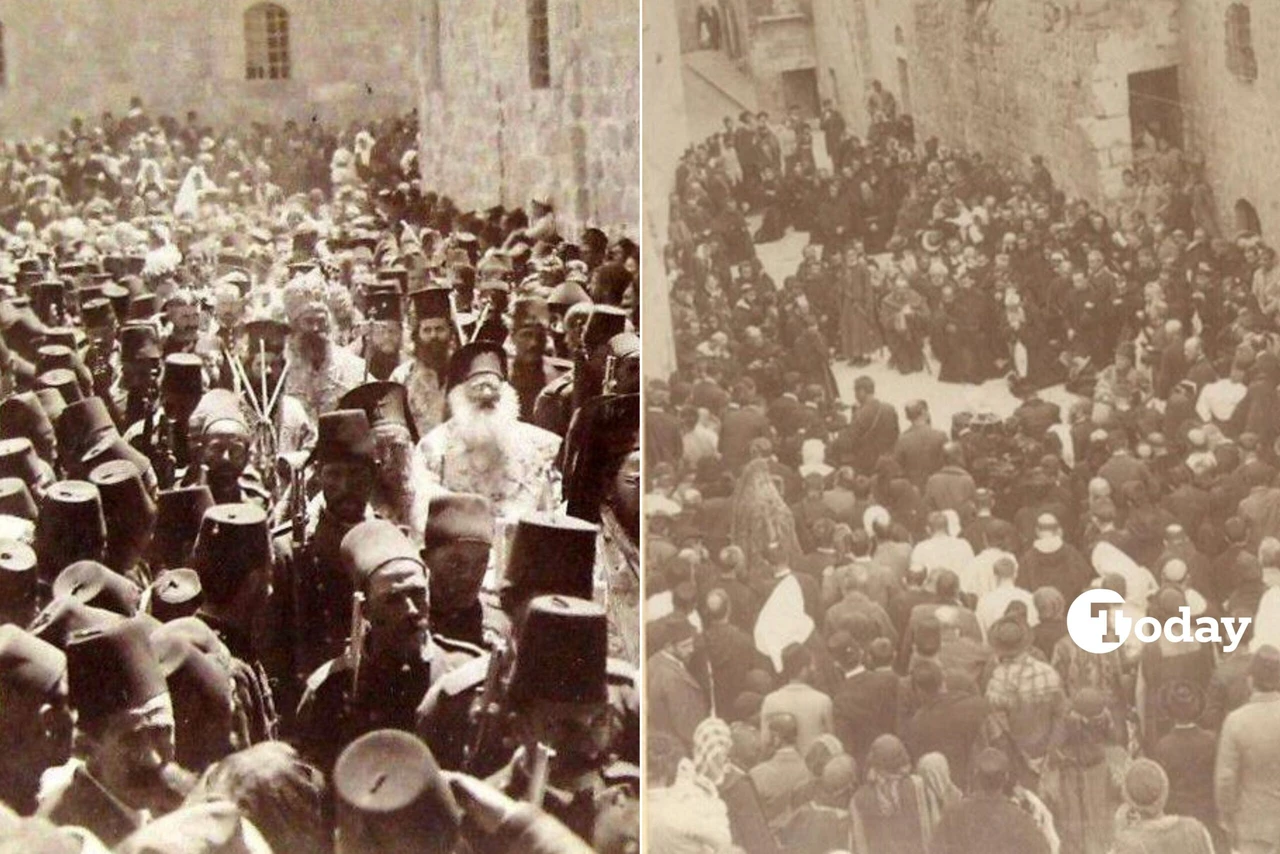Türkiye’s Silifke Castle reveals evidence of ‘cult of dead’ in new archaeological dig
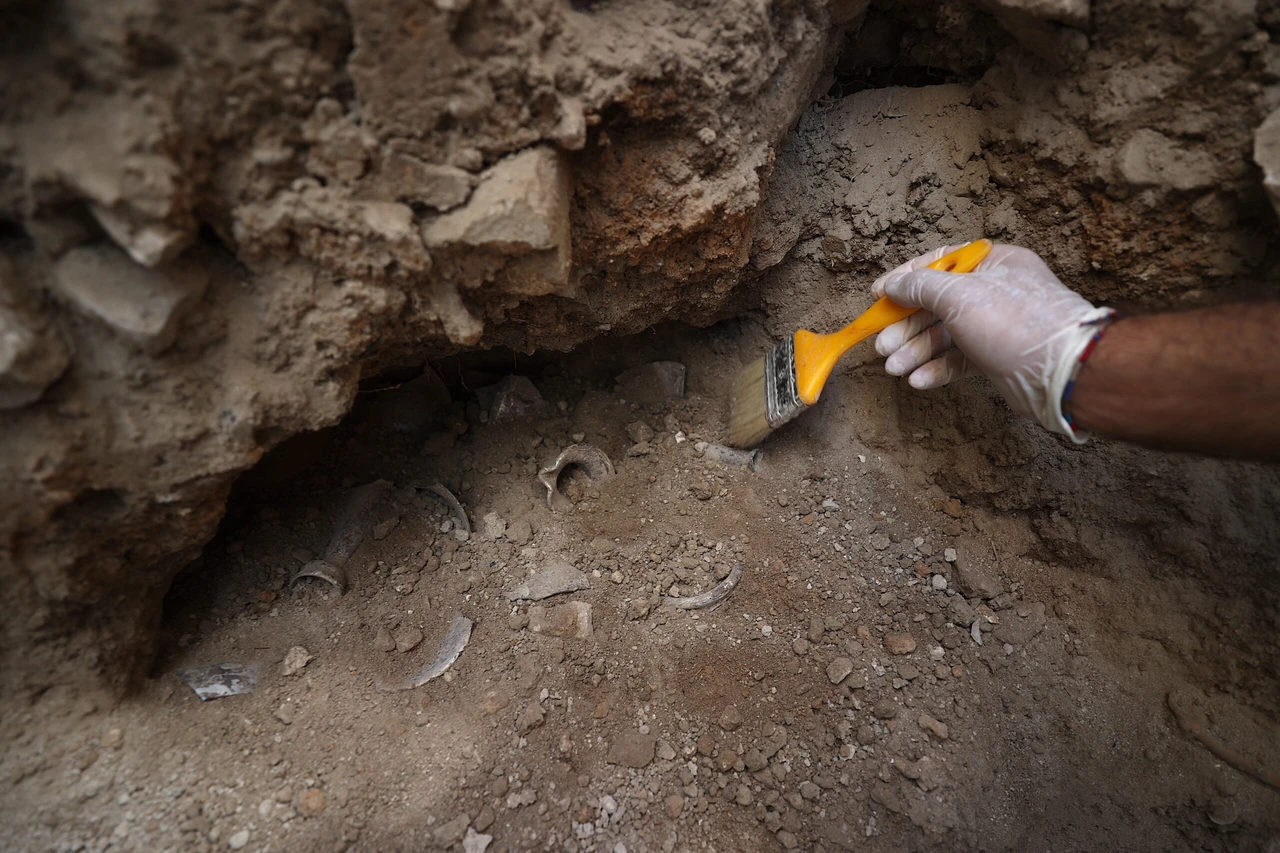 Archaeological works carried out at the Silifke Castle in Mersin, which was a place of uninterrupted settlement from the Roman Period until the 20th century, yielded interesting finds in graves, Türkiye, August 31, 2024 (AA Photo)
Archaeological works carried out at the Silifke Castle in Mersin, which was a place of uninterrupted settlement from the Roman Period until the 20th century, yielded interesting finds in graves, Türkiye, August 31, 2024 (AA Photo)
An intriguing array of ancient artifacts, believed to be evidence of the cult of the dead, has been uncovered in recent archaeological excavations at Silifke Castle in Mersin.
The discoveries include tear-shaped glass vessels, oil lamps and ceramics, providing a glimpse into the customs and practices of past civilizations.
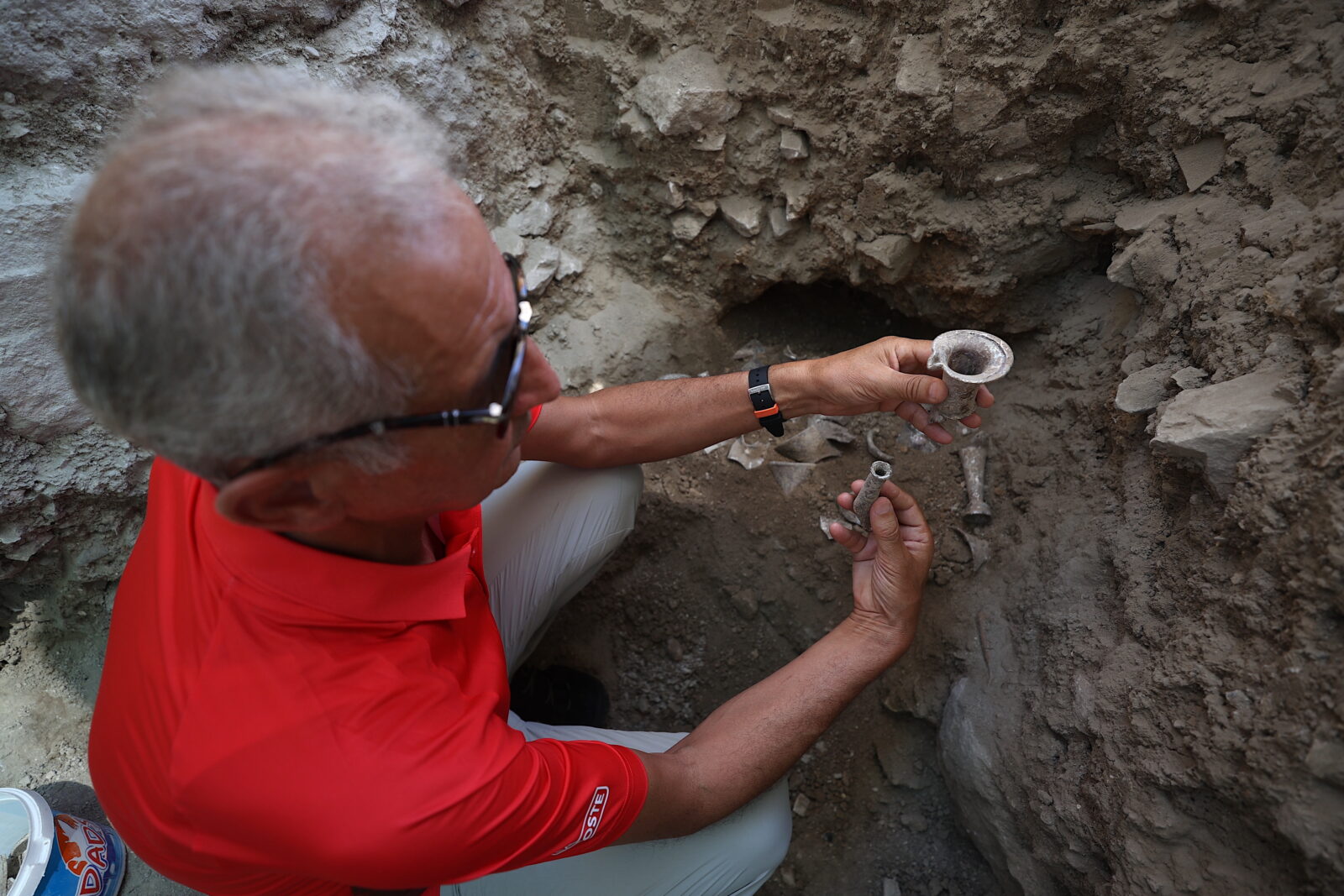
Silifke Castle, perched on a 185-meter-high hill in the district, has been the focus of ongoing 13th-period excavation and restoration efforts led by the Ministry of Culture and Tourism.
The latest findings come from Byzantine-era structures under the direction of professor Ali Boran from Ankara Haci Bayram Veli University.
The recently discovered items, including tear-shaped glass vessels and oil lamps, are believed to have been left as offerings in graves during the Ancient Period.
These findings are notable for their collective discovery, as previous excavations had only yielded scattered grave goods.
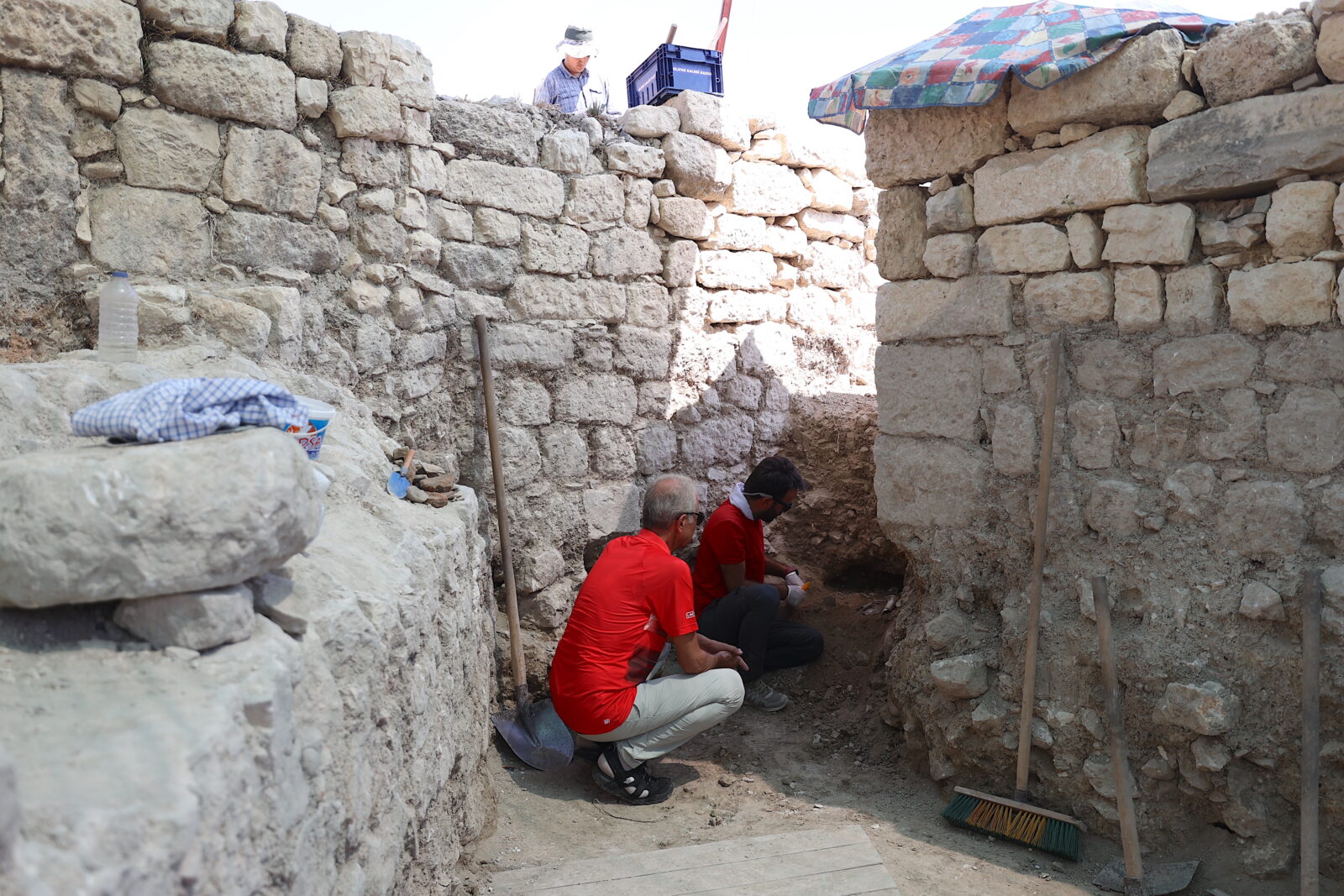
Significant discoveries in ancient necropolis
Professor Boran, who is heading the excavation team, stated that the castle’s layers from different periods continue to emerge.
He highlighted the importance of these findings, noting that this is the first time such a substantial collection of grave artifacts has been found together.
He emphasized the significance of uncovering these objects within Byzantine-era structures, as it aids in dating and understanding the architectural and cultural context of the period.
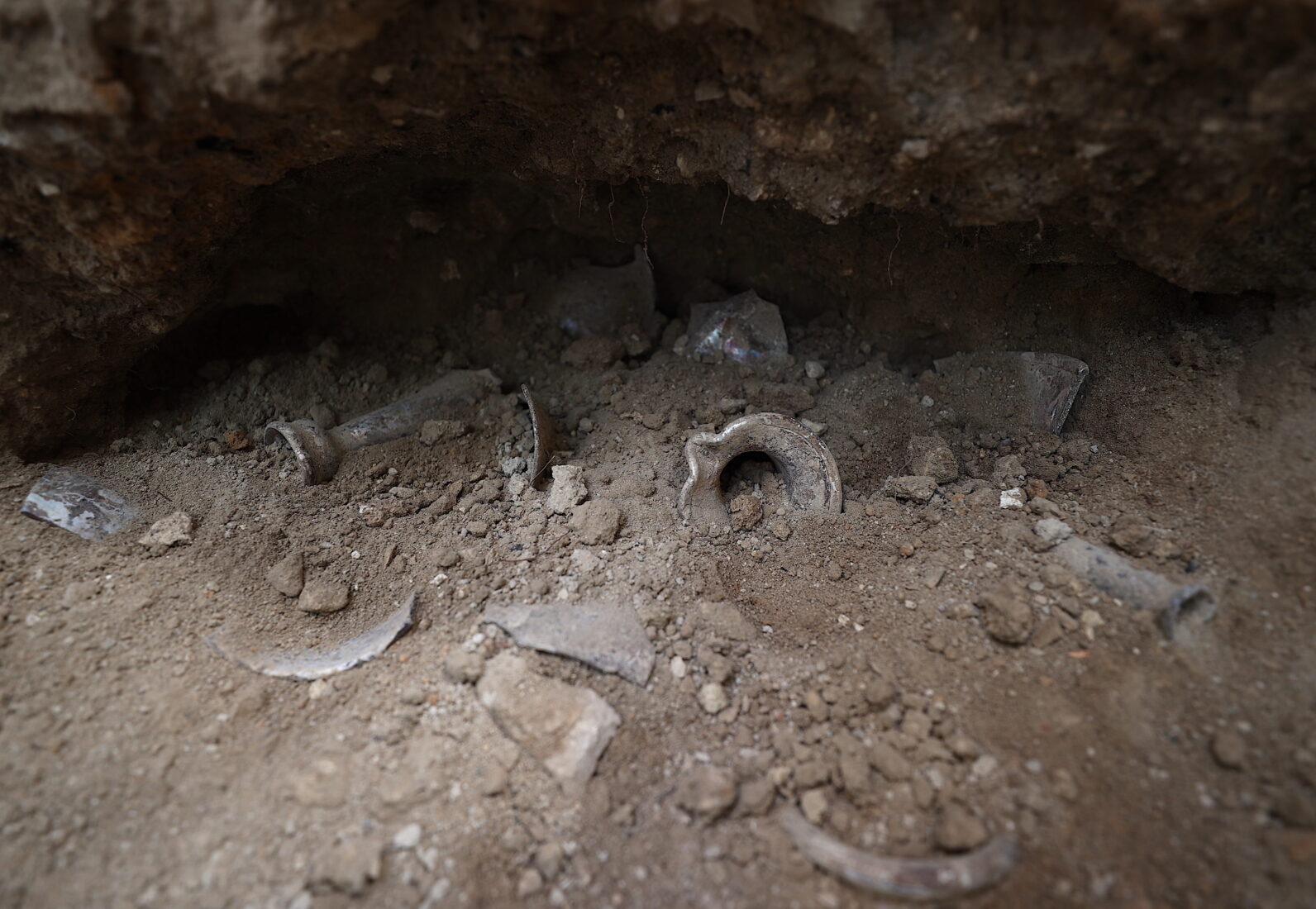
Boran added that further analysis, including laboratory tests, will provide more detailed information about the artifacts and their historical significance.
The ultimate goal is to restore and reopen the castle, which spans from the Roman and Byzantine periods through the Karamanids, Ottoman Empire and Republic eras, to the public after the completion of these studies.

